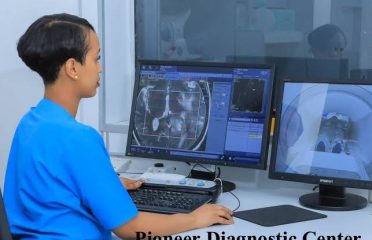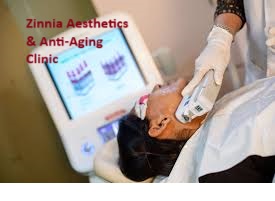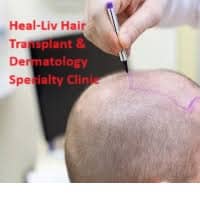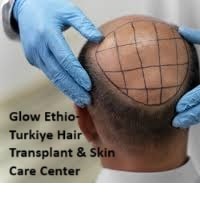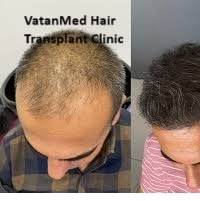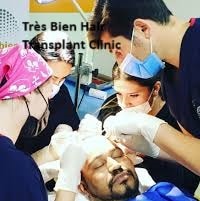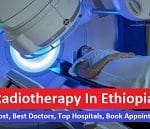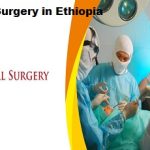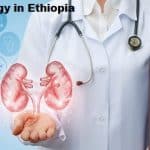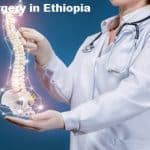Top 10 Treatments Cost in Ethiopia
1. Brain Tumor Surgery Cost in Ethiopia: $6,896
Brain surgery is used to treat conditions like epilepsy, blood clots, aneurysms and tumors in the brain. Most of the neurologists in Ethiopia who do brain tumor surgery are highly qualified and experienced. They are able to arrange effective brain tumor surgery for a particular form of cancer with few side effects and detect the stage of tumor progression. To ensure the patient receives the proper medication dosage and the best possible care, they collaborate closely with the nursing team. The cost of Brain Tumor Surgery in Ethiopia is $6,896.
When compared to other nations, Ethiopia has a lower cost for brain tumor surgery. Additionally, most hospitals feature modern infrastructure that offers patients the best environment and includes the most up-to-date medical technology for performing brain tumor surgery.
2. Craniotomy Cost in Ethiopia: $7,377
A craniotomy is the procedure used the most frequently to remove brain tumors. An incision is made on the scalp, and a piece of the skull’s bone is removed to allow the neurosurgeon access to the tumor. Usually, after the procedure, the piece of bone that was removed from the skull is put back. The cost of craniotomy in Ethiopia will be $7,377.
Craniotomies are frequently life-saving procedures done on patients who have brain lesions like tumors, blood clots, or traumatic brain injury (TBI). Craniotomies also enable surgeons to implant devices like deep brain stimulators for the treatment of Parkinson’s disease, epilepsy, and cerebellar tremor.
3. Cranioplasty Cost in Ethiopia: $7,698
Cranioplasty is the surgical treatment of a bone deficiency in the skull brought on by an earlier procedure or injury. When a person has a visible skull deformity, a cranioplasty reshapes the head to make it look more natural. Cranioplasty Cost in Ethiopia is around $7,698.
A craniotomy is a surgical operation used to temporarily remove a bone flap from the skull in order to access the brain. After brain surgery, a tiny metal plate and screws are used to restore the bone flap to the skull at its original location. The bone heals over time just like any other damaged bone would.
4. Cerebral Aneurysm Cost in Ethiopia: $5,934
An aneurysm in the brain is a ballooning that results from a weak spot in the blood vessel’s wall. Aneurysms frequently go unnoticed until they rupture or start to leak blood. A ruptured aneurysm can result in a deadly stroke and a severe headache. A variety of methods are used as treatments, such as diverting blood flow over the aneurysm and preventing blood from entering the aneurysm. The treatment cost for Cerebral Aneurysm in Ethiopia is $5,934.
A ruptured aneurysm can cause a sudden, severe headache (sometimes known as a “thunderclap headache”). Sometimes, a little blood leak from an aneurysm can also cause a headache to continue for days or weeks. A sentinel headache is the name for this persistent headache. It serves as a signal that the aneurysm is about to burst.
5. Peripheral Nerve Surgery Cost in Ethiopia: $7,137
Your body is covered in peripheral nerves that emerge from your spinal cord and brain. These nerves provide you the ability to move, see, hear, and feel. Your peripheral nerves can be repaired with surgery.
Acute nerve injuries, entrapment neuropathies, and nerve sheath tumors are all treated with peripheral nerve surgery. It involves rerouting healthy nerves to replace the injured, ill, or damaged nerves’ lost functionality. In Ethiopia, the cost of Peripheral Nerve Surgery is $7,137.
6. Gamma Knife Cost in Ethiopia: $5,934
A type of radiation therapy called gamma knife radiosurgery is used to treat brain tumors, vascular malformations, and other disorders. When treating brain tumors with gamma knife radiosurgery, doctors can keep the majority of the patient’s healthy brain tissue. This innovative technique has been particularly helpful in reducing the size of metastatic tumors, or tumors that form in the brain as a result of cancer that has spread from another part of the body. Open brain surgery is invasive, and gamma knife radiosurgery is usually a safer option. The treatment is open to both adults and children. Gamma Knife surgery will cost $5,934.
7. BT Shunt Cost in Ethiopia: $7,698
The pressure inside the skull can be reduced by a shunt treatment, a type of brain tumor surgery. A shunt is a hollow tube that is surgically inserted into the brain (or occasionally the spine) to drain cerebrospinal fluid and direct it to different part of the body where it can be reabsorbed. By draining the extra fluid in the extra brain ventricles, the shunt tube lowers pressure on the brain, a condition known as hydrocephalus, and moves the extra fluid to a different location of the body, where it can be quickly absorbed. The cost of BT Shunt in Ethiopia is $7,698.
Shunt treatments can relieve hydrocephalus symptoms like gait difficulty, mild dementia, and loss of bladder control by relieving pressure on the brain that hydrocephalus causes. A patient’s symptoms and precise diagnosis will determine the type of brain shunt they receive.
8. Carpal Tunnel Release Surgery Cost in Ethiopia: $7,377
Carpal tunnel release is a surgery performed to manage and possibly cure the excruciating condition known as carpal tunnel syndrome. Injury, such as a sprain or fracture, or frequent usage of a vibrating tool can result in carpal tunnel syndrome. Symptoms of carpal tunnel syndrome frequently appear when holding a phone, a newspaper, or firmly clutching a steering wheel. Carpal Tunnel Release surgery cost in Ethiopia is $7,377.
Additionally, they frequently happen at night, and you can be awakened by them or wake up feeling numb. In order to remove pressure from the median nerve, a surgeon performs a carpal tunnel release procedure by making an incision in the palm of your hand above the ligament that surrounds the carpal tunnel.
9. Brachial Plexus Injuries Cost in Ethiopia: $6,736
Signals from the spinal cord are sent to the shoulder, hand, and arm via the brachial plexus, a network of nerves. When these nerves are stretched, squeezed, or in the worst cases, torn apart or severed from the spinal cord, the brachial plexus is damaged. The severity and location of a brachial plexus injury can have a significant impact on the signs and symptoms that develop. Most often, only one arm is impacted.
Not every brachial plexus injury requires medical attention. Even though it may take weeks or months for the injury to heal, some people, notably adults with neuropraxia or babies with brachial plexus birth injuries, recover on their own. While some exercises might help in recovery and functionality, surgery may be necessary for more serious wounds. Any suspected brachial plexus injury must be promptly examined by a medical professional. The cost of Brachial plexus injury treatment in Ethiopia is $6,736.
10. Stereotactic Procedures Cost in Ethiopia: $7,137
It is a procedure used by neurosurgeons to precisely find and treat a tumor or other lesion inside the brain. It involves the use of MRI or CT imaging studies. A typical procedure that enables a neurosurgeon to identify a brain lesion is stereotactic brain biopsy. Typically, the purpose of this type of surgery is to eliminate an abnormality identified by an MRI or CT scan. The image is entered into the computer system, which generates a three-dimensional image of your brain and provides the benefit of allowing for the most minimal incision over the targeted area of interest. If you want to get treated in Ethiopia, the cost of the procedure would be $7,137.


